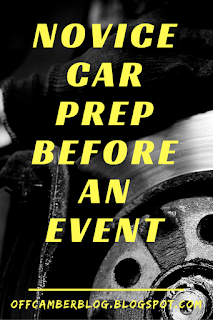Most people will agree that cars today require far less maintenance than they used to. Oil changes go past 5,000 miles, spark plugs are only every 100,000 miles or so, tune ups are all but gone, and cars even tell you if you have a low tire. While this is great it has led to a general feeling that you never have to worry about anything about your car but this is far from the truth! We still need to pay attention to our cars and in the end, it's you, the owner, that's responsible for it's health. Heeding some of the advice listed below will not only make your car more reliable, but it will also allow you to get to know more about how it works.
Check Your Oil Regularly
Many people assume new cars don't consume oil when in fact, across all makes, oil consumption warranty claims are on the rise. Mix the higher oil consumption rates with extremely long oil change intervals and people soon find their cars running out of oil! In pretty much every owners manual it recommends you check your oil every thousand miles. It's not a lot to ask since for most folks that's only once a month, and it could save you some serious trouble down the road.
Check Your Tires
All new cars are now required to have a tire pressure monitoring system that warns you if one of your tires is getting low. These systems are not fool proof however and it would be wise to know how they work, what their limitations are, and how to check the pressures yourself. Doing this while you're checking your oil is a good idea. If you find a tire consistently loosing a couple pounds per month you can get it checked and repaired before it leaves you stranded. Pay attention to the tread depth while you're doing this so you can plan early for the rather expensive tire replacement down the road.
Know How To Change A Tire
This one comes up so often these days. Yes, getting a flat and having to put on a spare on the side of the road, in the summer, in nice clothes sucks so very bad, but getting a flat in a place where you have no cell phone signal and you don't know what to do is MUCH worse! I have family in West Texas and there is a good chunk of I-10 where I lose reception. Picture getting a flat in the high desert, in 120 degree heat, with no ability to call for help. Not a pleasant thought is it? Go learn how to change a tire, please......
Open The Hood And Have A Look

Ok, sure, you most likely will not know what you're looking at but that's not the point. Checking under the hood will give you heads up if you're about to have car trouble. Things like oil leaks, power steering leaks, and coolant leaks are all obvious things to look for but there's more to see under there. Every cold snap we get a surge of people with strange electrical issues, bad smells, and check engine lights and the first thing I do is pop the hood of their car and see rodent droppings, nests and chewed up wiring. Most of the time it's pretty obvious the critter has been living in the car for quite some time and had the owner simply checked under the hood they could have saved a hefty repair bill.
We're now more than a generation beyond the time where a car's owner needed to know how to do all these things so don't feel dumb if you need someone to show you how to do the checks I listed above. Since the lives of most technicians, mechanics, and advisers would be easier if folks knew more about the cars they are driving you shouldn't have any trouble finding someone to happily take a few minutes to show you how to keep a better eye on your car.
 This is such a common issue with novice's cars that it deserves it's own section. Your battery must be secured with tie downs (factory is best) and be unable to slide off it's tray. Zip ties work in a pinch but shouldn't be a permanent solution.
This is such a common issue with novice's cars that it deserves it's own section. Your battery must be secured with tie downs (factory is best) and be unable to slide off it's tray. Zip ties work in a pinch but shouldn't be a permanent solution.








